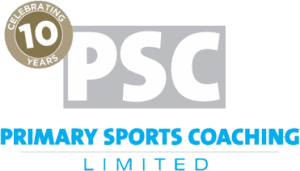EYFS Framework and Guidance
We follow the Statutory EYFS Framework to inform all decisions across the EYFS. The guidance provides us with the standards to ensure all children learn and develop with the acquired knowledge and skills to create a firm foundation of learning for their futures whilst keeping them safe and healthy at all times.
We plan using the Development Matters guidance. Sometimes we also incorporate the Birth to 5 Matters guidance too. You can find out more about these documents by clicking the links below.
Areas of Learning
The EYFS Curriculum is split into 2 sections, the prime areas of learning and the specific areas of learning. A firm foundation of learning is built from the children’s development of their prime areas, which then enables the knowledge and skills from the specific areas to be embedded.
The prime areas of learning are as follows:
- Communication and Language Development
- Physical Development
- Personal, Social and Emotional Development
The specific areas of learning are as follows:
- Literacy
- Mathematics
- Understanding the World
- Expressive Arts and Design
Characteristics of Effective Learning
Our mission in the EYFS is to prepare our children with the behaviours and dispositions to become life-long learners inside and outside the walls of St Thomas’. We ensure children develop their Characteristics of Effective Learning through positive relationships, understanding every unique child and their development within these areas and through our challenging environments.
A stated in the Birth to 5 Matters document in relation to the Characteristics of Effective Learning, ‘Children are powerful learners from birth. They can develop strong habits of mind and behaviours that will continue to support them to discover, think, create, solve problems and self-regulate their learning. Children need consistent lived experiences of autonomy alongside support for their growing awareness and control of the processes of thinking and learning. Play, time, space and freedom to follow their intentions, sustained shared thinking, and experiencing the satisfaction of meeting their own challenges and goals all contribute to development as curious, creative, resourceful and resilient learners’.
The Characteristics of Effective Learning are as follows:
Finding out and exploring
- Showing curiosity about objects, events and people
- Using senses to explore the world around them
- Engaging in open-ended activity
- Showing particular interests
Playing with what they know
- Pretending objects are things from their experience
- Representing their experiences in play
- Taking on a role in their play
- Acting out experiences with other people
Being willing to ‘have a go’
- Initiating activities
- Seeking challenge
- Showing a “can do” attitude
- Taking a risk, engaging in new experiences, and learning by trial and error
In Reception, children focus on a different school animal linked to these areas each week. These skills (and animals) are a focus throughout the school to support children’s on-going development of their growth mindset.
 Contact us
Contact us






